The Apocalypse Is Not What I Expected
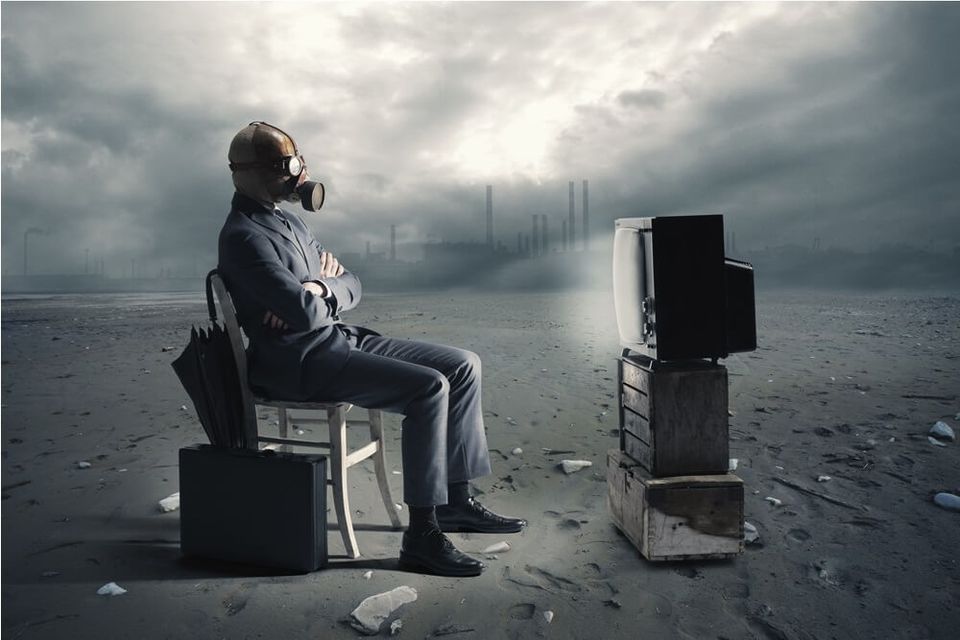
“What looks like apocalypse in prospect often feels more like grim normality when it arrives in the present.” - David Wallace Wells
When I was a kid, I watched a lot of movies about the end of the world—Mad Max, The Terminator, Day of the Dead, Deep Impact, Independence Day, stuff like that.
Watching these movies, I internalized the Hollywood view of the apocalypse: People running to the stores, stripping the shelves, and trampling one another as they flee for their lives. Oftentimes, there’s a scene where a child drops a teddy bear or something, reminding us that the end of the world is sad.
Meanwhile, the people in charge meet in dimly-lit rooms full of blinking lights and monitors. Scientists in white lab coats explain the situation while military generals smoke cigarettes and scowl. The President listens carefully as advisors tell him his options. The goal is always to minimize the loss of life or at least save the human race from extinction.
Of course, now I understand that these are just movies and nothing like real life. Even so, I’m still shocked at how different the apocalypse is from what I imagined.
I didn’t realize the world is ending until 2020. I had spent months reading up on climate change in order to find out how bad it was and whether humanity could avoid the worst-case scenario.
For years, I had assumed that renewables would replace fossil fuels, but by the summer of 2020, I realized that was impossible. Humans were hopelessly addicted to oil. Without it, we would return to pre-industrial lifestyles, only on a planet with way more people and much worse weather.
By the fall of 2020, I fully understood that modern society will break down over the next few decades, and that my life will likely be cut short, along with the lives of my loved ones. Humanity had failed, and the end was near.
It’s hard to express how frightened and depressed this made me. Sometimes, I walked around in a daze, my stomach filled with butterflies, barely hearing what people said. Other times, I sat alone and quietly wept, thinking about my children who no longer had the future I’d envisioned for them.
It was a long time before I told anybody what I’d learned. I didn’t want people to think I was crazy. Sometimes I wondered if I really was crazy, so I’d spend time reading positive news about climate change and renewables, only to be disappointed when I realized how little was being done to prepare for the climate crisis—not to mention peak oil and biodiversity loss.
When I finally did tell a few people, their reaction was about what I expected. They thought I’d gone down an internet rabbit hole, just like the people who bought into the Y2K or 2012 doomsday predictions. I didn’t blame them. I would have reacted the same way a few years prior.
What I didn’t expect was the reaction of those who believed me. I can think of at least a couple people who accepted everything I said, agreed that civilization is doomed, and their reaction was basically, “Well, that sucks.”
I guess it’s because of Hollywood, but I thought those who believed me would be more alarmed. I thought they’d say things like, “What should we do?”, “Where should we go?”, or “How do we prepare?”
Instead, they just changed the subject.
This is why I’m convinced that of all the doomsday movies, the most realistic is Don’t Look Up. Many critics slammed it as over-the-top, but I think the director nailed it. If a planet-killing comet really were headed toward Earth, most people would either shrug it off or deny that it’s happening.
A few weeks ago, I decided to warn my closest relatives about the collapse, so I created a Facebook group for my mom, my siblings, and their spouses. I made a post explaining, as briefly as possible, why it’s too late to prevent a climate catastrophe and why the energy crisis is going to cause the breakdown of modern civilization over the next few decades. I included plenty of citations so they could see the data for themselves.
I wasn’t sure how they would react. Would they ask questions? Would they call me insane? Would they agree with me and start talking about how to prepare? The suspense was killing me.
So how did they react? Well…they didn’t. I got one supportive comment from someone who is already collapse-aware, but the rest of them didn’t saying anything.
Literally nothing at all.
Honestly, I would have preferred they attack me for being a crazy conspiracy theorist. At least that would have been something. At least I would have had the the opportunity to engage with them and make my case in more detail.
Ignoring me was the worst thing they could have done.
After a few weeks, I decided I shouldn’t be so disappointed in them. The end of the world is scary, so maybe they just needed more time to process it. And if they thought I was crazy, maybe they figured it was better to let me be crazy than get into a debate with me.
So, I made a different kind of post. This time, I talked about the teachings of Michael Dowd and the idea that we can still live a life of joy and gratitude, even in the face of collapse. I shared one of his talks, Being the Calm in the Storm, and encouraged them to watch it.
How did they respond? Once again, they didn’t. I got another supportive comment from the same person as before. The rest of them didn’t say anything.
This left me feeling baffled. If one of my relatives made a post saying that the world is going to end, then even if I thought they were crazy, I would still say something. I would ask how they can be so certain, or I would try to cheer them up somehow. I wouldn’t just ignore them. But that’s what they did.
When I first formed that Facebook group, I told them that I didn’t want our discussion to be all doom and gloom. I wanted our group to be a place where we could support and encourage one another—a place where we could share advice on how to prepare ourselves both physically and mentally. So much for that idea.
I guess they’re too busy with their lives to think about the apocalypse.
Something similar is playing out across all of society. There is a small group of people who understand that the planet is going to keep warming for the foreseeable future, that the sixth mass extinction event has already begun, that we are running out of resources such as fossil fuels and rare-earth metals, and that infinite growth on a finite planet is impossible.
And yet, we’re mostly ignored. We have the data, the facts, and the common sense on our side, but that doesn’t matter. People don’t want to believe the world is ending, so they just…don’t. It doesn’t matter how strong of a case we make.
Right now, the federal government should be springing into action. They should be working on plans to reinforce infrastructure, build mass transit systems, encourage local farming, move people away from flood-prone areas, educate the populace on how to use less energy, and so much more.
Instead, the government is focused on doing the bidding of corporations—banks, defense contractors, fossil fuel companies, all the usual suspects. And the people running these corporations either don’t know collapse is inevitable, or they don’t care and are more interested in getting a bigger bonus next year.
This isn’t all that surprising, but you’d think there would be at least a few politicians who understand what’s happening and want to warn people. Barack Obama, for example. I have a ton of criticisms of him, but the guy isn’t stupid. He’s smart enough to understand how screwed we are, and yet he presided over a massive shale-oil boom in the U.S. and even bragged about it.
The most recent thing he said about the climate crisis is, “If we work really hard, we may be able to cap it at 2.5°C instead of 3°C. Or 3°C instead of 3.5°C.” Inspiring stuff. Thanks, Obama.
Surely he knows that 2.5°C or higher means we will trigger irreversible tipping points that doom industrial civilization and possibly extinguish the human race. Right? How can he not know that? Or is he just trying to keep people calm so that he and the other elites can maintain their wealth and power for as long as possible?
I don’t know. All I know is that I’m terribly disappointed. I expected the Republicans to ignore climate change, but it feels like Democrats are ignoring it, too.
Yes, the Biden administration invested billions in green energy, but so what? Green energy is still bad for the environment, and all it will do is keep our planet-destroying system alive for a few more years. Meanwhile, Biden keeps approving more drilling projects.
One thing is certain: There will never be a time when a U.S. President meets with scientists and generals and makes big decisions on how to prepare society for the collapse. Instead, our leaders will keep pretending everything is okay and that huge economic growth is just around the corner.
Most working-class people will keep pretending, too. They’ll either deny there’s a climate crisis, or they’ll deny that it’s an existential threat. Even as they’re dying of heatstroke or starving to death due to crop failures, many of them still won’t acknowledge what’s really happening. Instead, they’ll blame China, Democrats, foreigners, minorities—pretty much anyone except themselves.
Why? Because admitting that your lifestyle is partially responsible for the apocalypse is just too painful.
That’s the problem with most movies about the end of the world. They don’t take human psychology into account. They ignore concepts such as normalcy bias, pluralistic ignorance, and diffusion of responsibility.
No matter how bad things get, people will continue with their regular routines and either deny the collapse is happening or refuse to think about it, and we’ll continue living in a boring dystopia until the apocalypse kills us all.
Maybe Hollywood should make a movie about the collapse—one that’s based on the true story we’re all living. Of course, if they did, people would say it’s unrealistic.
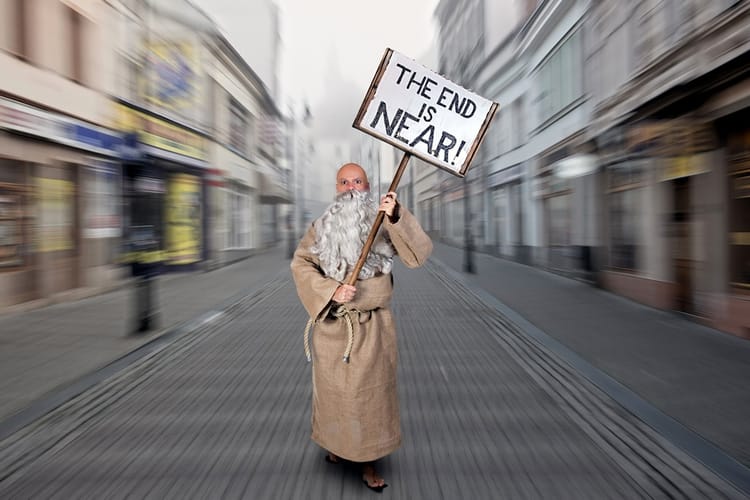
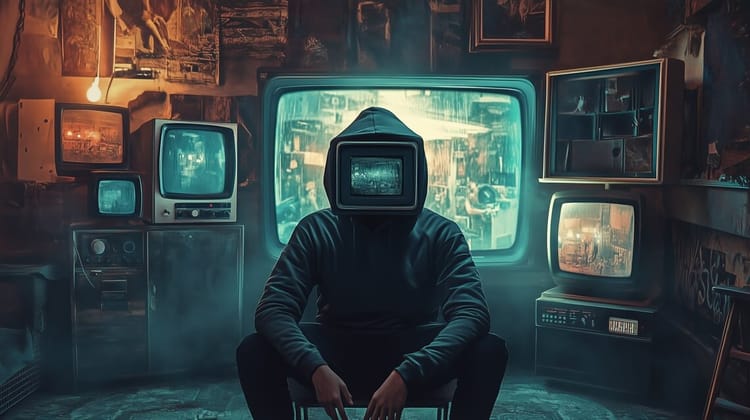
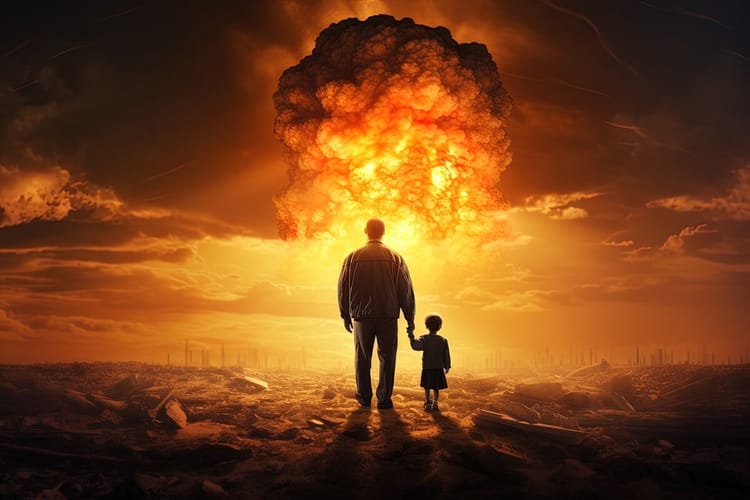
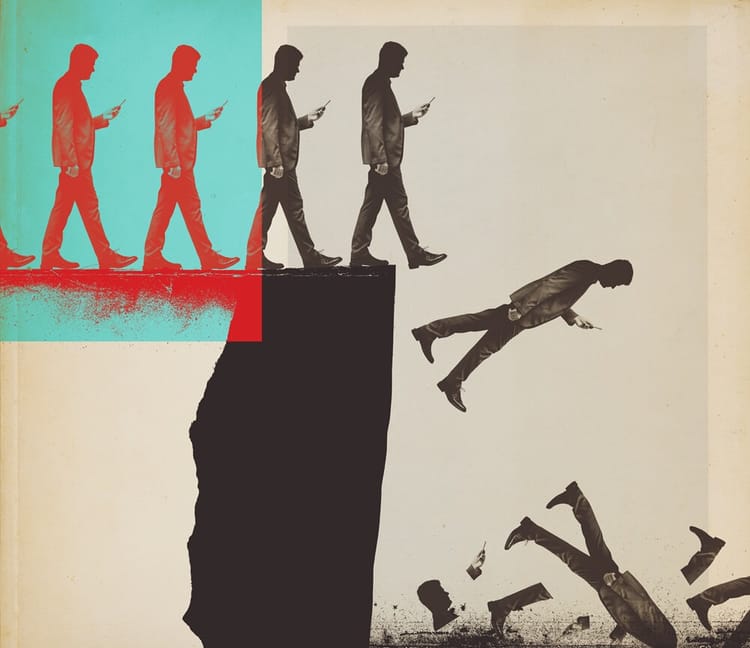
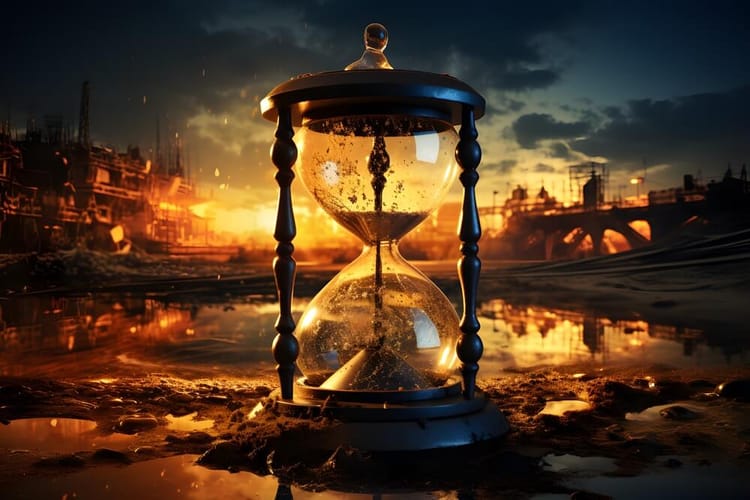
Member discussion